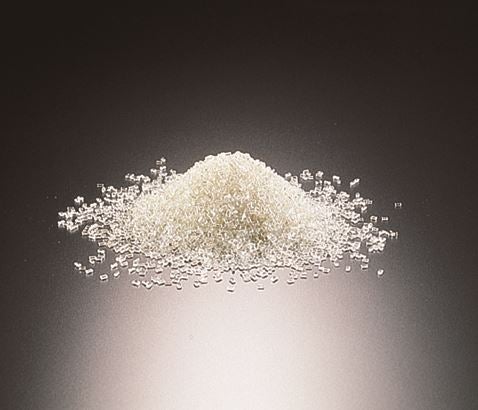
The technology from Teijin is said to produce recycled materials equivalent to petroleum-derived polyester raw materials. Using a new depolymerisation catalyst for the conventional bis (2-hydroxyethyl) terephthalate (BHET) method, spent polyester is chemically decomposed and purified back into BHET intermediate raw material before being repolymerised into polyester.
The production process is simpler than using dimethyl terephthalate (DMT) and ethylene glycol in a transesterification reaction, so recycling is achieved with less energy consumption, according to the firm. It adds the new technology also reuses resources such as wastewater, waste liquid and depolymerisation catalysts.

Discover B2B Marketing That Performs
Combine business intelligence and editorial excellence to reach engaged professionals across 36 leading media platforms.
Teijin Frontier will launch a pilot facility at its Matsuyama Plant this month and proceed with verification tests. It also will continue developing recycling technologies to improve the quality of recycled polyester raw materials and reduce environmental load. Aiming to realize a sustainable value chain for a circular economy, Teijin Frontier is working to establish a mechanism for sustainable fiber-to-fiber recycling of polyester in cooperation with partner companies and consortiums both in Japan and global.
Compared to material recycling, which melts and moulds used products including polyethylene terephthalate (PET) bottles, DMT-based chemical recycling results in less deterioration of quality due to recycling, but its energy consumption is high. The BHET method is often used when recycling from colourless and transparent PET bottles as new PET bottles, and also its energy consumption is lower compared to the DMT method, but there were difficulties in producing high-quality recycled polyester raw material because foreign substances, such as dyes used for coloured polyester fibers, could not be completely removed, resulting in discoloured recycled raw material.
Teijin Frontier, guided by its Think Eco environmental initiative, is striving to improve its environmental value, including through eco-friendly plant management and the development of greener materials and products for applications ranging from clothing to industrial materials.
Last month, Teijin announced it had developed a proprietary system for calculating CO2 emissions generated by the company’s polyester fibre production processes and eventually expects to use the system for full lifecycle assessments of its products.

US Tariffs are shifting - will you react or anticipate?
Don’t let policy changes catch you off guard. Stay proactive with real-time data and expert analysis.
By GlobalData




